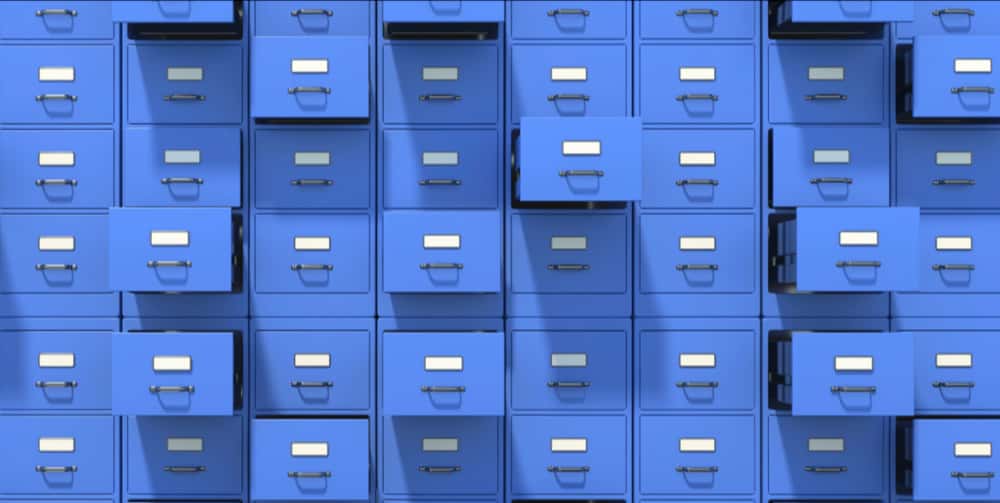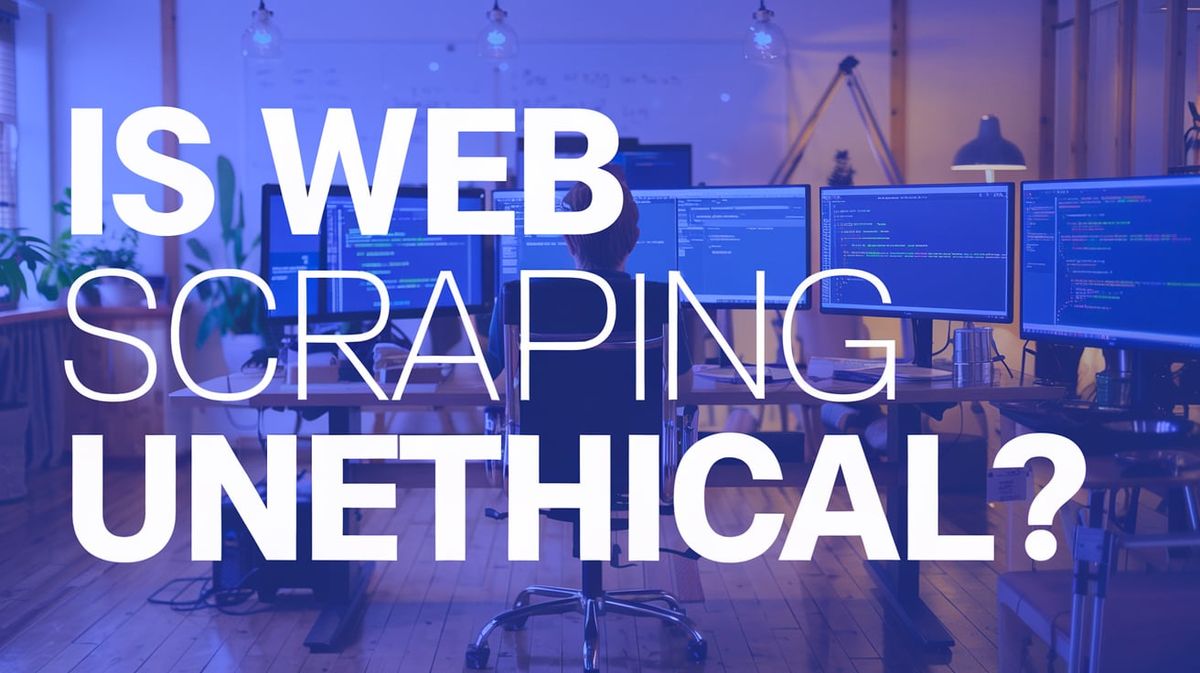Web scraping can be considered unethical in some cases, depending on how it is used and what data is being scraped. In general, web scraping becomes unethical when it is used to access and gather data that is not intended to be public or that is protected by privacy laws.

Here are a few examples of unethical web scraping:
Scraping sensitive or personal data
Web scraping can be used to extract sensitive or personal data from websites or online resources, such as financial information, medical records, or login credentials. This can be unethical if the data being scraped is not intended to be publicly available, or if it is protected by privacy laws.
Scraping copyrighted content
Web scraping can be used to extract copyrighted content, such as text, images, or videos, from websites or online resources. This can be unethical if the content being scraped is protected by copyright laws and the scraper does not have permission to use it.
Scraping data for spam or phishing
Web scraping can be used to gather data that is then used for spam or phishing campaigns. This can be unethical as it can be used to trick people into giving away sensitive information or to spread false or malicious information.
Scraping data for competitive advantage:
Web scraping can be used to gather data from a competitor's website or online resources for the purpose of gaining a competitive
Related news shows that web scaping is legal: https://techcrunch.com/2022/04/18/web-scraping-legal-court/
Here are some common questions and answers about web scraping
- What is web scraping?
Web scraping is the process of using automated tools or software to extract data from websites or other online sources. It involves visiting a web page or series of web pages, extracting the desired data, and saving it to a file or database for later use.
- Why is web scraping useful?
Web scraping can be useful for a wide range of purposes, including data mining, data analysis, price comparison, lead generation, and more. It allows you to quickly and efficiently gather large amounts of data from the web, which can be used for a variety of purposes.
- Is web scraping legal?
The legal status of web scraping varies depending on the specific circumstances and laws of the country in which it is being carried out. In general, web scraping is not illegal as long as it is done for legitimate purposes and does not involve accessing or collecting data that is not intended to be public. However, some websites and online resources may have specific terms of service or terms of use that prohibit the use of web scraping tools or software.
- What are the risks of web scraping?
There are several risks associated with web scraping, including the risk of violating privacy laws, copyright laws, or terms of service. Web scraping can also be resource-intensive, as it involves visiting and parsing large numbers of web pages, which can put a strain on the web server hosting the pages. Additionally, web scraping can be used for malicious purposes, such as spamming or phishing, which can pose a risk to individuals and organizations.
- How do I get started with web scraping?
To get started with web scraping, you will need to choose a web scraper tool or software, such as import.io, ParseHub, or Web Scraper. You will then need to configure the scraper to specify the data you want to extract and the web pages you want to extract it from. Once you have configured the scraper, you can run it to start extracting data from the web.
Ethical and Legal Considerations in Web Scraping
Web scraping, despite being a powerful tool for data gathering, raises ethical questions at times based on how it's used and what data is being scraped. It can be considered unethical or illegal in several situations such as:
Scraping Sensitive or Personal Data:
Extracting sensitive or personal data from websites like financial information, health records, or login information is unethical and potentially illegal if the information isn't publicly available or is protected by privacy laws.
Scraping Copyrighted Content:
Extracting copyrighted material like text, images, or video content is unethical and possibly illegal, unless the scraper has obtained permission to use such content.
Scraping Data for Spam or Phishing:
Collecting data for the purposes of spamming or phishing is highly unethical and is typically considered illegal. This includes actions that trick individuals into disclosing sensitive information or propagate malicious or false information.
Scraping Data for Competitive Advantage:
Gathering data specifically from competitor's websites for a competitive advantage can be considered unethical, depending on the scenario and the local rules and regulations.
However, in recent years there have been cases where web scraping has been seen in the legal light as long as it's performed ethically and the data collected isn't misused. A prime example is shown in this news article.
Frequently Asked Questions About Web Scraping
What is web scraping?
Web scraping is the process of using automated software or tools to extract data from websites or other online sources.
Why is web scraping useful?
Web scraping provides the utility of data mining, data analysis, pricing comparison, lead generation, and more by gathering massive quantities of data speedily and efficiently from the web.
Is web scraping Legal?
The legality of web scraping is context-specific. It generally doesn't violate the law if performed for legitimate purposes and doesn't access or collect non-public data. However, terms of use or service of certain providers may prohibit web scraping.
What are the risks of web scraping?
Violating privacy or copyright laws or Terms of Service, overloading servers, or scraping for malicious purposes like spamming or phishing are some risks linked to web scraping.
How do I get started with web scraping?
Start by selecting a web scraping tool or software, such as import.io, ParseHub, or Web Scraper, configure the tool specifying the data you want to collect and the pages to scrape it from, and then run the tool to begin your web scraping.
Check other articles:
How to Prevent Web Scraping: Protect Your Website and Data in 2023

